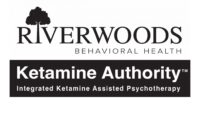Resources and Relevant Studies - Ketamine Facts
Subcutaneous Ketamine in Depression: A Systematic Review
Ketamine has been studied and used for psychiatric purposes for over 20 years (1). Its rapid and robust antidepressant effect has been reproduced across numerous studies by significantly decreasing the severity of depression, achieving substantial rates of response and remission even for patients that were non-responsive to previous treatments.
https://www.ncbi.nlm.nih.gov/pmc/articles/PMC8193034
Ketamine as a promising prototype for a new generation of rapid-acting antidepressant
In the early 1990s, researchers conducting preclinical studies found that NMDA-R antagonists showed promising antidepressant qualities.7, 8 Later in the 1990s, in a pilot study in patients with severely treatment-resistant depression, we discovered that a single subanesthetic dose of ketamine had striking, robust, rapid antidepressant effects within 4 h of intravenous administration.9 This finding has since been well replicated in multiple controlled trials,10, 11 underscoring the rationale of targeting the glutamatergic system and the feasibility of developing truly novel rapid-acting antidepressant agents.12, 13 These noticeable rapid antidepressant effects have also been reported in patient groups known to respond poorly to traditional antidepressant interventions, such as those with bipolar depression, anxious depression, and patients who are treatment resistant to electroconvulsive therapy (ECT).14–17 In addition, ketamine showed efficacy in rapidly reducing suicidal ideation within hours of administration.
KETAMINE IN CONTEXTUAL TRAUMA THERAPY: THE PARADOX OF DISSOCIATION IN (COMPLEX) PTSD
The last decades were marked by substantial progress in the research on the application of psychedelics (such as psilocybin, ayahuasca, LSD, MDMA, and Ketamine) for the treatment of a wide range of mental health difficulties and psychological disorders. Among the classical and non-classical psychedelics, Ketamine is of specific interest to us for several reasons. Most importantly, it was found to benefit patients with various psychological disorders including PTSD, dissociation, depression, anxiety, and substance use disorders.
Recent research on the neurobiological effects of Ketamine sheds light on how Ketamine may induce its therapeutic effects. Ketamine promotes neuroplasticity through both ‘synaptogenesis’ (creation of new synapses between neurons) and ‘neurogenesis’ (growth of new neurons).

